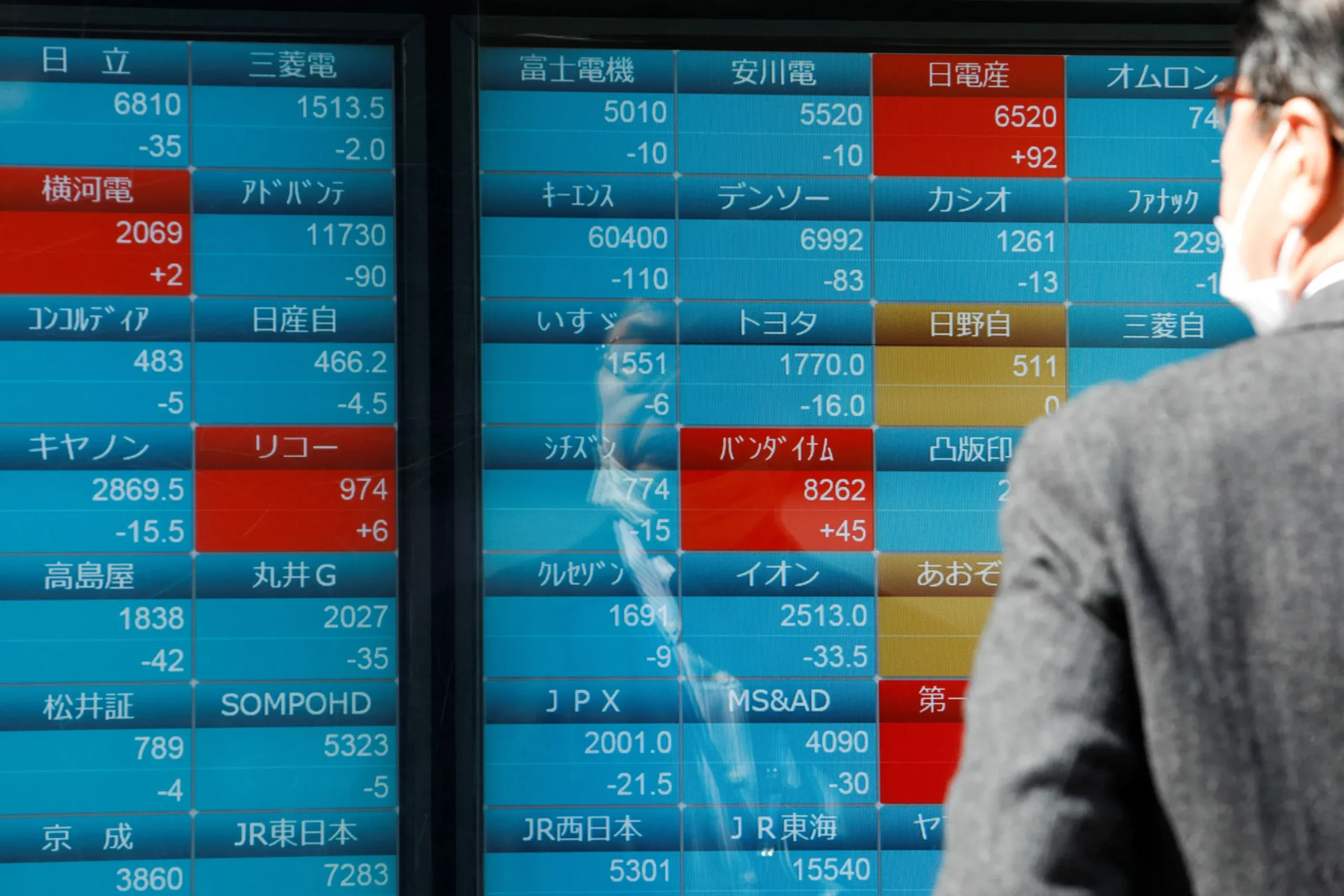
LONDON (Reuters) -A global rally in chipmakers was set to spill over into Wall Street on Friday, raising investor spirits as markets rein back bets that interest rates will start to fall in just a matter of weeks.
U.S. stock index futures were firmer, with the S&P 500 index near a record high. [.N] No major U.S. economic data is due before the opening bell.
Oil prices were headed for a weekly gain on the back of Middle East tensions and oil output disruptions in the United States.
The dollar was also on track to rise for a second straight weeks as pushback from central bankers caused traders to dial down expectations of swift and sharp falls in borrowing costs, leaving gold facing its worst week in six.
Markets hope for more clues on the timing of any easing in borrowing costs when European Central Bank (ECB) President Christine Lagarde speaks at the World Economic Forum gathering in Davos.
Euro zone bond yields inched off one-month highs as focus shifts to next week’s ECB meeting.
“We don’t expect this meeting to be a turning point for euro zone rates or for the euro,” ING bank analysts said in a note to clients.
The MSCI All Country stock index was up 0.25% as a rally in semiconductor stocks, triggered by Taiwan’s TSMC predicting strong growth, helped push the S&P 500 index on Wall Street to end near a record high on Thursday.
The MSCI index, however, is down 1.4% this month after a near 20% jump in 2023.
Markets are pricing in a 57% chance of a U.S. rate cut in March, down from 75% a week ago.
Mike Hewson, chief market strategist at CMC Markets, said it was wishful thinking for markets to expect the Fed to start cutting rates in March, barring any massive escalation of events in the Middle East or other big economic event.
“We are still range trading, and I think that is going to continue, albeit in a fairly choppy manner until we get some sort of clarity as to whether we can pin down the timing of the first rate cut,” Hewson added.
In Europe, the STOXX index of 600 companies was slightly firmer, and down 1.8% down for the month.
Patrick Spencer, RW Baird vice chair of equities, said the deflationary trend was continuing thanks to China, helping to bolster the case for rate cuts, with the corporate earnings season now underway also helping sentiment.
“The earnings numbers, as always, will be slightly better than expected, and I think that’s going to most probably rescue the market and you won’t see a dramatic downturn,” Spencer said.
THE CHIPS ARE UP
Asian shares bounced on Friday, buoyed by a rally in global chipmakers, while the yen was set to end the week with heavy losses.
In Asia, MSCI’s broadest index of Asia-Pacific shares outside Japan gained 1.2% on Friday, but was still down 2.7% for the week.
TSMC surged 6.5% after the chipmaking giant projected 2024 revenue growth of more than 20%. Its U.S. shares soared nearly 10% overnight, fuelling a broad tech rally on Wall Street. [.N]
Japan’s Nikkei rose 1.4% to just a touch below a 34-year top hit on Wednesday. Data showed Japan’s core consumer inflation slowed for a second straight month in December, adding to speculation that the Bank of Japan is not in a rush to tighten its ultra loose monetary policy.
The yen lost 0.08% to 148.030 per dollar, having fallen almost 2.5% for the week to the lowest level since early December. [FRX/]
Chinese stocks slipped again after bouncing off five-year lows a day before on signs of state support. [.SS]
The U.S. dollar index, which measures the greenback against a basket of major currencies, was flat at 103.36, and has gained about 0.9% this week.
Treasuries held mostly steady in Asia but are also set for heavy weekly losses. The 10-year yield eased slightly to 4.1360%, while the two-year yield edged up to 4.3569%.
U.S. crude futures eased 0.1% to $73.98 per barrel and Brent futures were at $78.95.
Spot gold was up 0.5% at $2,032 an ounce.
(Reporting by Huw Jones, additional reporting by Stella Qiu; Editing by Susan Fenton and Mark Potter)


